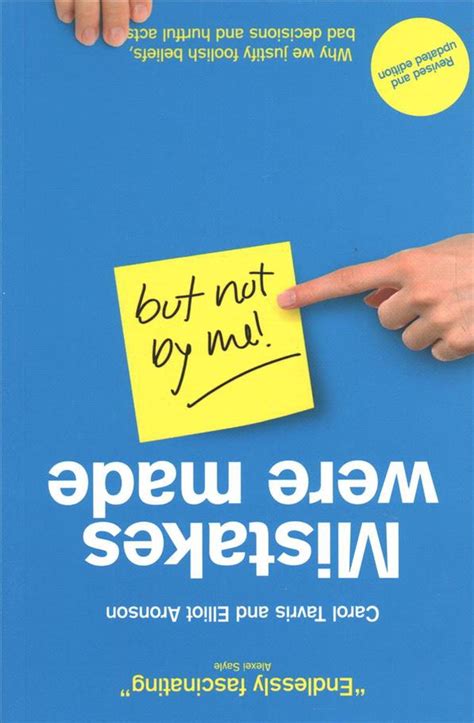Mistakes were made (but not my me!)
This is an interesting take on social psychology! At times, we rely too much our brain’s auto pilot mode and let it take us for a wild ride. So much of our life is controlled by our unconscious actions that many of us never even come to know.

The research and facts presented under cognitive dissonance and self-justification were quite thought provoking. Through self-justification, we often fool ourselves in the interest of feeling good and being right. That transcends into other aspects of life and can make or break our relationship with others and ourselves.
Between the conscious lie to fool others and unconscious self-justification to fool ourselves, there’s a fascinating gray area patrolled by an unreliable, self-serving historian — memory.
It takes a significant effort to identify the moments of self-justification, observe ourselves dispassionately to break out of the self justfication. That’s no justification to not to make that effort though. It is so common that to feel we’re less biased and more independent than others. In reality, that may turn out to be so wrong.
Memory confabulation showed how our own memory stitches the facts and how it can fool us at times if we are cognizant enough of our own actions. False memories give us a chance to forgive ourselves through self justification, but at a cost of not holding ourselves accountable and taking responsibility.
If letting go of self-justification and admitting mistakes is so beneficial to the mind and to relationships, why aren’t more of us doing it? If we are so grateful to others when they do it, why don’t we do it more often? Most of the time we don’t do it because, as we have seen, we aren’t even aware that we need to.
I felt the narration and vocabulary were little complex when I started off. It took some time to get comfortable. References to American politics and politicians were aplenty throughout the book. That turned out to be too boring after few references, so I ended up skipping those sections. There is a whole chapter dedicated to President Trump dissecting many of his statements and actions from a social psychological perspective. You can check out a Kindle preview here.





Comments